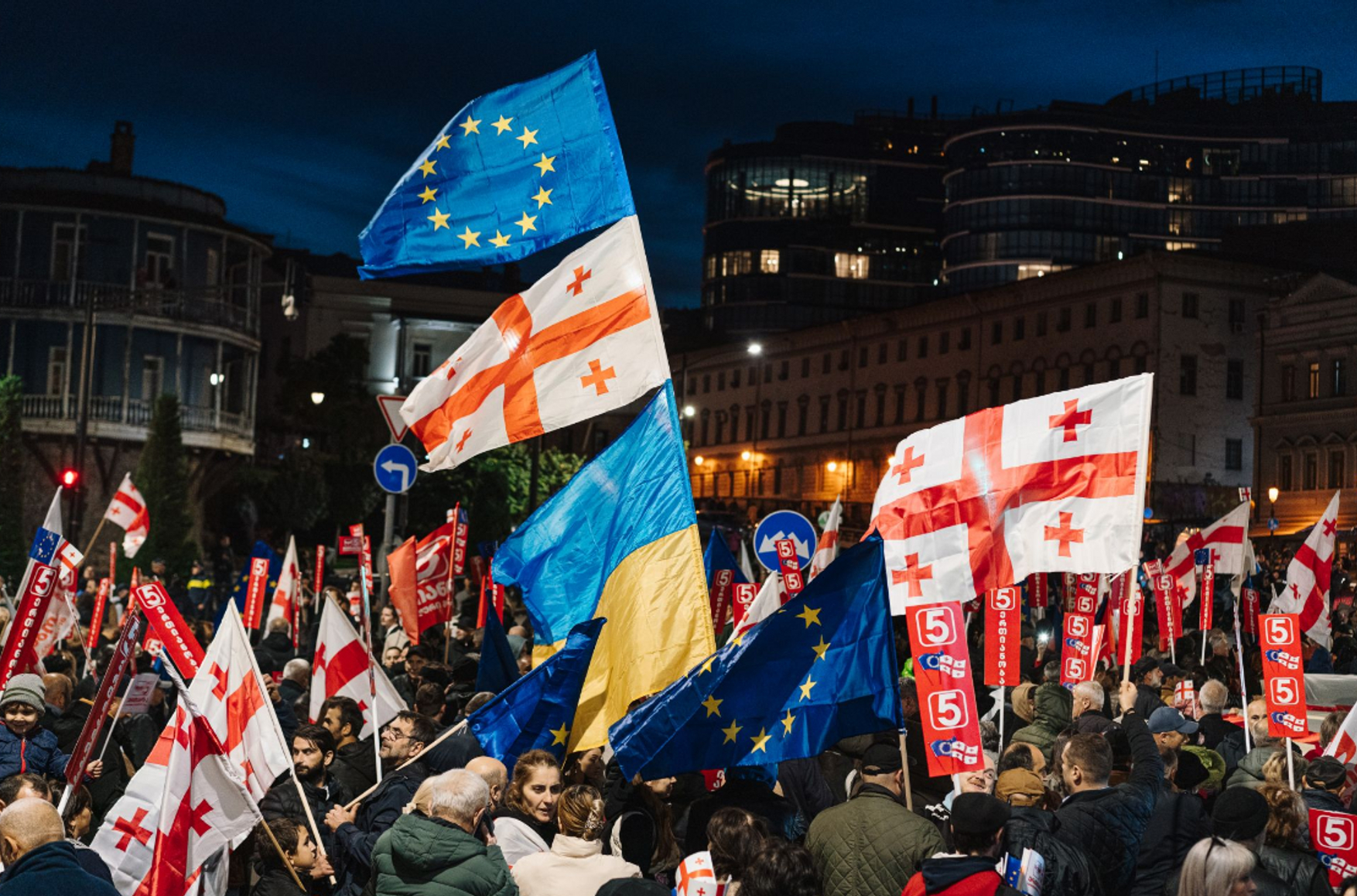
An opposition march held under the motto “Georgia chooses the European Union” took place in Tbilisi on Sunday, Oct. 20. As local media outlet Paper Kartuli reports, “thousands of people” gathered in the Georgian capital’s Freedom Square.
The participants marched with the flags of Georgia, the European Union, and Ukraine. Banners associated with Georgian opposition parties and associations could also be seen.
Georgian President Salome Zourabichvili, who openly supports a European path for the country while actively opposing the adoption of repressive laws that distance Georgia from joining the EU, was also spotted among the protesters. In May, she vetoed parliament’s Russian-style “foreign agents” law and filed a lawsuit against it in the country's Constitutional Court. In addition, Zourabichvili refused to sign the law banning “LGBT propaganda.”
However, the Georgian political system favors the legislative branch, and the Kremlin-friendly forces in the majority there overrode the president’s veto. The upcoming election is widely seen as civil society’s best chance to remove the political forces of oligarch Bidzina Ivanishvili from power and return Georgia to the path of Western integration.
Sunday’s rally was also attended by the speaker of the opposition Unity-National Movement party, Levan Sanikidze, who told Georgian Online:
“This is a moment of culmination; we are well aware of the importance of the Oct. 26 elections, as it is a referendum [on making the choice] between a free EU member state and a state in Russian slavery. Our main goal is to show Ivanishvili and our country's enemies that there are many of us. Six days ahead of the elections, the authorities will receive a message from the public that they will step away from power through elections.”
In July, EU Ambassador to Georgia Pawel Herczynski announced the suspension of Georgia's EU accession process. He also noted that the EU had frozen 30 million euros intended to support Georgia's defense sector. According to Herczynski, direct aid to the Georgian government will be reduced and funds will be redirected to support civil society and independent media. This move occurred after the Georgian parliament passed a Russian-style “foreign agent” law and a law on “LGBT propaganda” and family values in the first reading, provoking a negative reaction in the West.
Georgia is set to hold parliamentary elections on Oct. 26.